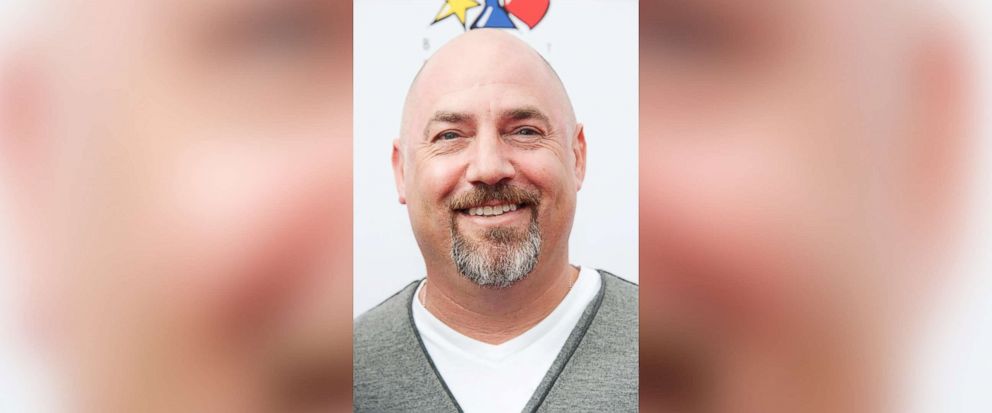'I've never felt more emasculated': Terry Crews sheds light on why men don't speak out about harassment
Experts explain how men experience sexual harassment differently from women.
— -- Actor Terry Crews said that he "never felt more emasculated" than after his alleged sexual assault, shedding light on societal misconceptions about gender roles that experts say may deter men from speaking up when they are victims of sexual misconduct.
"Back in February 2016, I was assaulted by Adam Venit, who is head of the motion picture department at William Morris Endeavor, one of the biggest agencies in the world, period," Crews, 49, said live on "Good Morning America" on Wednesday. "He's connected to probably everyone I know in the business ... I did not know this man. I have never had a conversation with him, ever."
After his powerful live interview, Crews relayed further details about what he says happened at a Hollywood party he attended with his wife last year.
"It's like you're a prisoner of war," Crews, a former NFL linebacker said of the incident. "I've never felt more emasculated, objectified."

"He takes his right hand and, under mine, and immediately squeezes, grabs my genitals," Crews told ABC News. "I slap his hand away, pushed him back more forcefully."
He added that he immediately told Adam Sandler, the honored guest at the event, what had allegedly happened and then left with his wife.
Crews said Venit called him the next morning and apologized for his actions.
"I got a call. It's him on the line — 'I'm sorry, I was drunk, I wasn't myself that night,'" Crews said.
He added that he did not feel the apology was sincere, saying, "It's like when people are sorry because they got caught."
More recently, after the Harvey Weinstein scandal caused a wave of people to speak out about sexual misconduct in Hollywood, Crews said that he also met with the head of William Morris Endeavor, Ari Emmanuel, the company's co-CEO.
"I brought out a letter that he wrote in 2011 which demanded that Mel Gibson be blacklisted from Hollywood for anti-Semitic remarks," Crews said. "I took that letter, crossed out 'Mel Gibson,' put 'Adam Venit,' crossed out 'anti-Semitic remarks,' put 'sexual assault.'"
"I said, 'Read that letter. Now you know what you got to do,'" Crews added. "He said, 'It's different.'"
While Crews recently parted ways with the agency, he said he identifies with the fear that many others say deters them from speaking out against their harasser: fear of retaliation.
"He is privy to all the studio heads who hire me," Crews said. "Who's to say he couldn't poison that?"
William Morris Endeavor told ABC News that Venit was suspended after an internal investigation into the matter. Venit and Emmanuel declined ABC News' requests for comment Wednesday.

Why male victims of sexual misconduct may not speak out
Crews is not the first man in Hollywood to come forward with accusations of sexual harassment. Actors James van der Beek and Anthony Edwards also recently came forward, sharing their allegations of sexual harassment in Hollywood.
The issue of sexual harassment in the workplace extends far beyond Hollywood. The Equal Employment Opportunity Commission said it received over 12,000 complaints of sexual harassment last year alone and over 15 percent of those were from men.
John Aravosis, a political blogger who said he was sexually harassed by a female colleague while he worked on Capitol Hill in the 1990s, said that societal misconceptions about gender roles may make it difficult for some men to speak out against misconduct.
"I think, as a guy, you sit there and think, 'OK, first of all, people are going think I'm crazy or something that I didn't like this,'" said Aravosis, who said a female colleague made inappropriate remarks to him over the phone. "You know, guys are supposed to like women coming onto them, and boy, she came onto me, and that's supposed to be cool and funny."
Aravosis recalled the harassment he says he faced, saying, "All I can compare it to is when I hear people talk about having their homes robbed. And they talk about this sort of sense of violation in their personal space."
He added that while he was not worried about his job or his personal safety, he's affected by a deterrent against speaking out. He said, "I feel kind of — I use the word 'wussy.'"
Phil and Erika Boissiere, a married team of psychotherapists, told ABC News that while women who experience sexual harassment tend to think it's their own fault, men often question their masculinity after facing sexual harassment.
"What women experience is self-doubt," she said. He said that women "are often immediately questioned about what their role was in provoking it, which is ridiculous."
Erika Boissiere said, "It's viewed by society where women coming onto men isn't a bad thing."
Phil Boissiere said, "In deciding to speak out, men butt up against this social script that men aren't supposed to ask for help."




